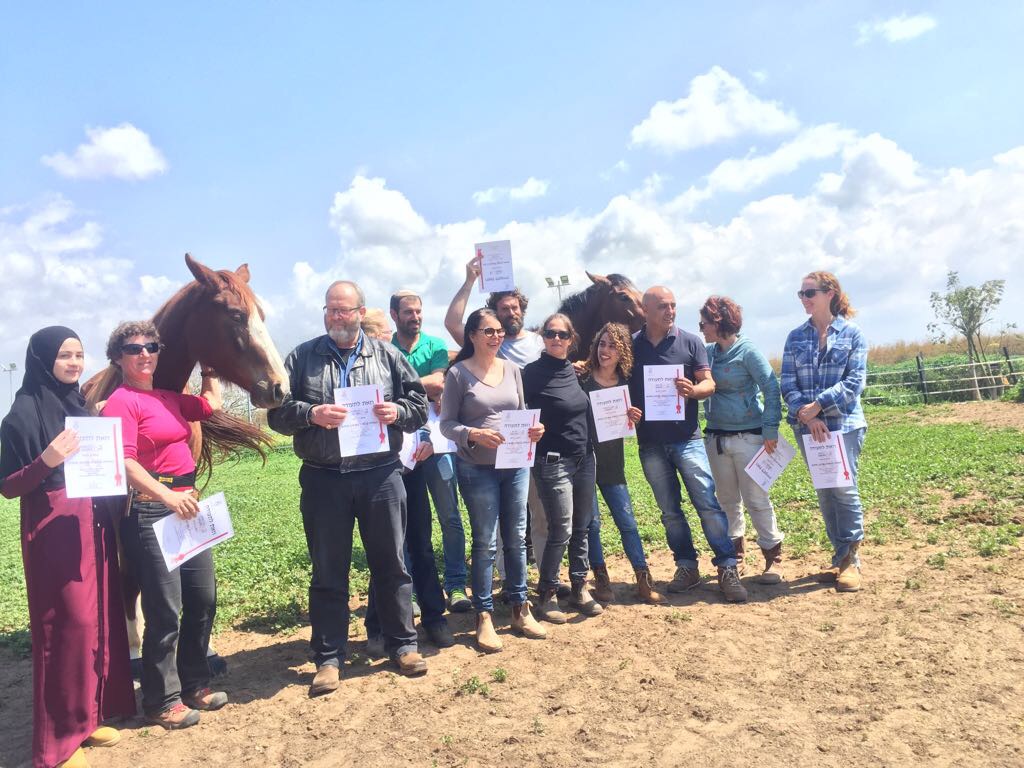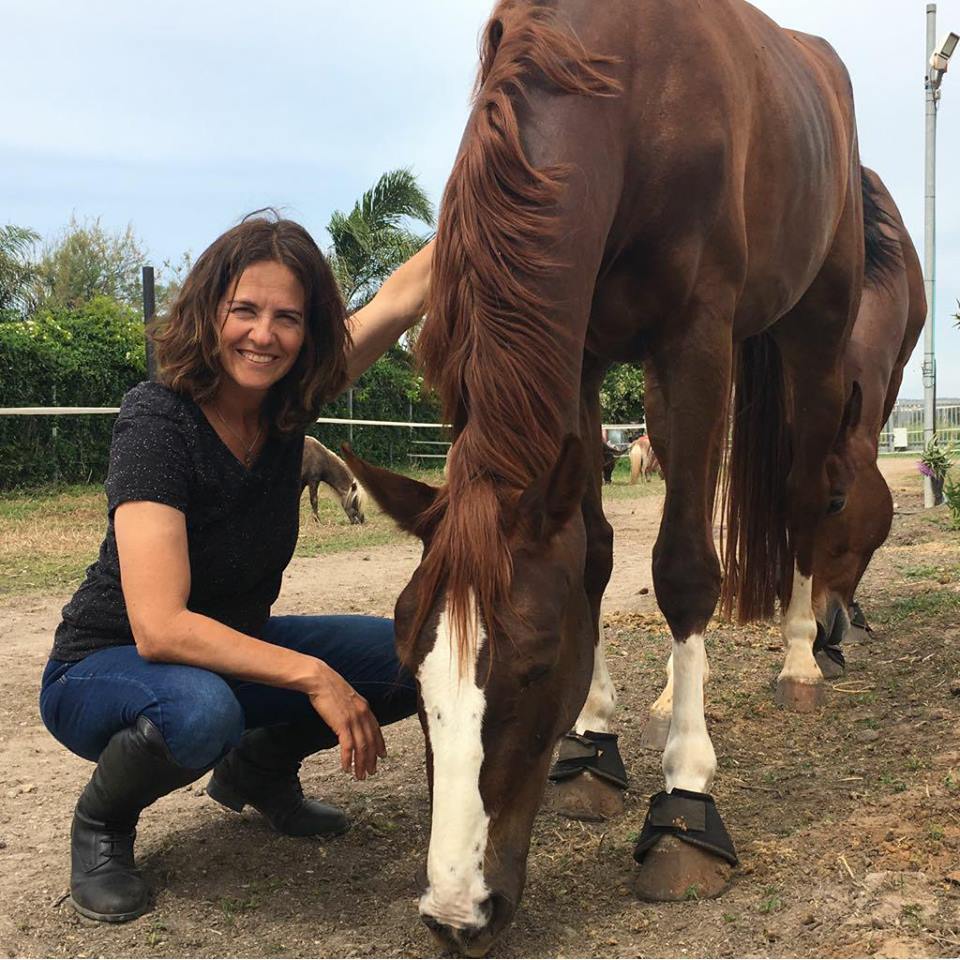A Unique and Meaningful Learning Experience in Group Facilitation with Horses
Group Facilitation Course with Horses
Group Facilitation Course with Horses
Are you a riding instructor? Ranch manager? Equine-assisted therapist?
Your time is worth much more!
If you’ve dreamed of working with horses and helping people, it doesn’t have to be such a strenuous, tiring, and exhausting job…
It's time to ! change the picture
With the knowledge you already have, and the additional knowledge you’ll gain from me, you can earn between 500-1,000 NIS per hour of work without effort!
You can work with the target audiences that interest you!
And all this while playing together with the free-roaming horses!

How Does All This Happen?
This course is based on experiential group learning combined with horses, as well as professional explanations of the actions taken within the group, viewed from multiple perspectives:
- The participant
- The facilitator
- The stage of group development
- The roles within the group
- The here and now
- The collective subconscious
- Translating the experience into meaningful learning
Topics We Will Cover in the Course:
Every group goes through different stages of development, from the introduction phase to full functioning and finally to separation. Understanding these stages helps the facilitator guide the group effectively and efficiently.
In every group, various roles emerge that influence the group’s dynamics and functioning. Understanding these roles helps the facilitator manage the group more effectively and foster a supportive and productive environment.
The facilitator’s role is to lead the group, ensure all members participate, and manage conflicts as they arise. The facilitator is also responsible for creating a safe and supportive environment for all participants.
There are different facilitation styles, such as directive, permissive, or participatory facilitation. Each style has its advantages and disadvantages, and the facilitator must choose the most appropriate style for the group and its objectives.
Integrating horses into the group process can greatly enhance dynamics and learning. At every stage of group development, horses can be used as a tool to develop communication skills, empathy, and mutual understanding.
Facilitating a working group requires organizational skills, communication, and time management. The facilitator must set clear objectives, assign tasks, and ensure that all group members participate and contribute.
Focusing on the here and now means paying attention to what is happening in the group at this moment. The facilitator should encourage participants to express their current feelings and thoughts, fostering open and authentic dialogue.
During the workshops, various techniques can be used to bring the group’s collective subconscious to the surface. These processes help raise awareness of patterns and content that are typically hidden, allowing for deeper understanding and growth.
Building workshops that incorporate horses requires careful planning and customization to meet the participants’ needs. Suitable activities must be selected and conducted in a safe and controlled environment to ensure the well-being of both the participants and the horses.
Incorporating horses in workshops involves using activities that engage participants in interactions with the horses. These activities can include grooming, walking with the horse, or exercises that simulate various life situations.
Marketing the workshop requires understanding the target audience and selecting the appropriate marketing channels. It is important to highlight the benefits and uniqueness of the workshop and to use testimonials and recommendations from previous participants.
Workshop topics can include interpersonal communication, leadership, team building, coping with stress, and more. It is important to choose topics that address the participants’ needs and contribute to their development.
The price for a workshop varies depending on its length, content, and resources invested. It is important to conduct market research and offer a competitive price that reflects the added value the workshop provides.
To transform the group experience into effective learning and empowerment, the facilitator must create a supportive and inclusive environment. Encouraging collaboration, positive feedback, and self-reflection ensures both personal and group development.
Group Facilitation Course
Course Requirements
- Attendance at Meetings: Full participation in all course sessions.
- Personal Journal: Participants will be asked to keep a personal journal to gain an additional dimension of the entire experience and to enhance learning.
- Completion of Assignments: Tasks will be given throughout the course.
What Will You Be Able to Do Immediately After the Course?
- Plan and facilitate fun days, ODT workshops, executive workshops, empowerment workshops, team-building days, and more.
- Conduct group facilitation processes incorporating horses for any purpose.
Upon successful completion of the course requirements, participants will receive a certificate.
Course developer and lead Instructore

Orly Herbst
Farm owner
Holds an MA in Group Facilitation from Lesley University, Boston.
Level 3 Equestrian Coach from the Netherlands, the highest level in equestrian sports.
Certified Equine-Assisted Therapist
International Coach certified by CTI.
Over 35 years of experience in the field.

Course Cost
3000₪
excluding VAT)
Early Bird Price:
2000₪
לפני מע״מ
The course will take place over two sessions on Fridays, from 9:00 AM to 4:00 PM.

